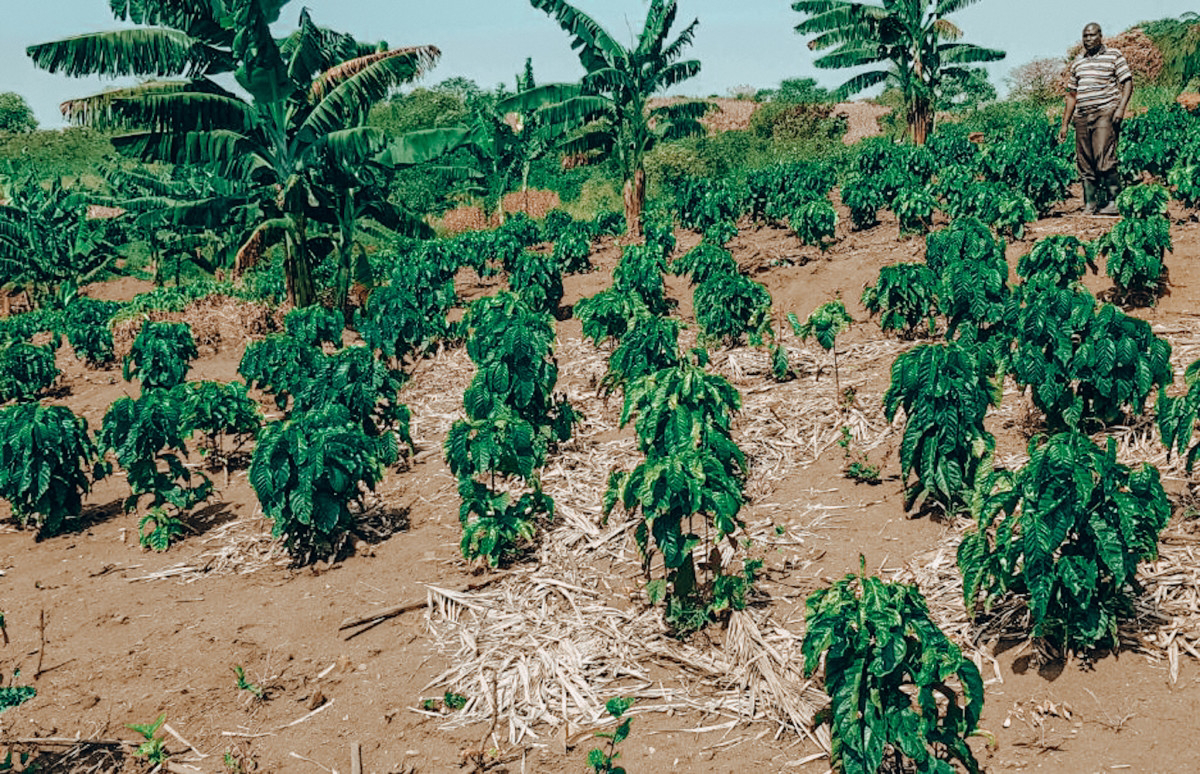Coffee Wilt Disease Resistant (CWDr - KR Clones)
A well-managed one acre of CWDr KR varieties can give you an
average of Shs13m per annum. This is because an acre can accommodate
750 trees considering commercial spacing of 10ft x 6ft. With an average yield
of 3.5kgs per tree, a farmer will harvest 2,625kgs of graded coffee per annum.
With an average price of Shs5000 per kilo (https://ugandacoffee.go.ug/ a farmer
will earn Shs13m per year.
History of Robusta Coffee
propagation in Uganda
Robusta Coffee grown in Uganda was derived
from trees collected by agricultural workers in the early 1900s and consisted
of two broad types: the “Erecta” type and the “Nganda”
type. By mid-1930s, it was realized that more productive cultivars could be
developed through deliberate selection within the existing tree population.
Towards the end of the 1960s, some 25 individual trees (lines) had been
selected on the basis of early maturity, high yield, large beans, good liquor
and resistance to fungal diseases. These were further reduced to 8 clonal
varieties that were later in 1995, reduced to 6. The six lines were distributed
to nursery operators for propagation and released to farmers for planting.
Unfortunately, in 1993 the Coffee Wilt
Disease (CWD) was identified to be attacking Robusta Coffee trees and the 6
clonal varieties were also found to succumb to the CWD. This destabilized the
replacement of old traditional Coffee trees with clonal varieties and by 2002,
about 56 percent of Robusta Coffee trees had been destroyed.
However, through rigorous
breeding for resistance to CWD, the National Coffee Research Institute (NaCORI) has
developed 10 Coffee Wilt Disease-resistant (CWD-r) lines that were released by NARO’s Variety
Release Committee. These 10 lines (KR1 – KR10) of Robusta
Coffee are high yielding, fast maturing large beans and resistant to Coffee
Wilt Disease. These lines are commonly referred to as KR-lines.
CWD-r KR lines are available for multiplication through both tissue
culture and nodal cuttings (vegetative propagation), although
the quantity available for planting by farmers is still low.
Clonal Robusta Coffee
Propagation
Robusta Coffee is preferably propagated by
vegetative means rather than through seed. This is because Robusta Coffee
exhibits self-sterility. Robusta Coffee plants grown from seed will
have a high degree of heterogeneity, which alters the desirable
characteristics of the resultant Coffee plants. This variation may be
manifested in the physical appearance of leaves, size of the fruits and beans,
tree vigor, productivity, tolerance to drought, fruit formation, length of internodes,
ripening time and uniformity. The method of vegetative propagation eliminates
this progressive loss of the desired traits in the descendant Coffee trees.
Clonal Coffee propagation involves harvesting
nodal cuttings from young shoots of recommended Coffee
varieties and rooting the nodal cuttings under specialized conditions. This is
the best method of propagating Coffee varieties derived from individual hybrid
trees (controlled
or open pollination), selected for exceptional agronomic and market
traits that can be lost if the varieties are propagated by botanical seed.
CWDr
KR Key Attributes
The major agronomic traits for CWDr KR Varieties are:
·
Fast maturing (Flowers within 1 year)
·
Higher yields as compared
to earlier Robusta Coffee varieties
·
Resistant to Coffee Wilt Disease
Tolerant to droughts
·
Large beans (big screen size)
Good taste (cup liquor).



Comments
Post a Comment